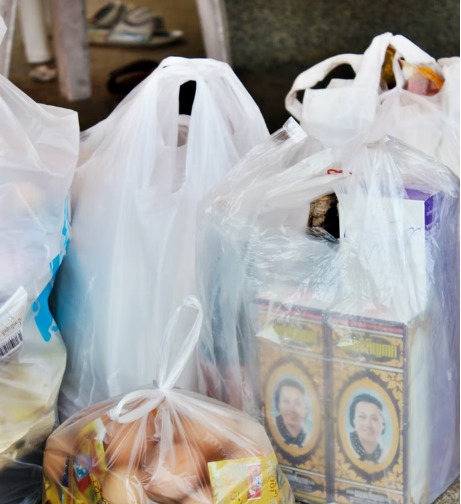Reusable grocery bags support the greater environmental sustainability movement
4 min read
The City of Fredericksburg implemented a five-cent tax on plastic bags, which went into effect on Jan. 1. Roberta Errani / Unsplash
ELI KEITH
Staff Writer
In a welcome move that follows the City of Fredericksburg’s five-cent tax on plastic bags, Wegmans has joined the fight against climate change and pollution. The City Council’s decision went into effect on Jan. 1, and since then Wegmans has been more environmentally conscious and, as a result, a smarter place to shop by doing away with their plastic bags. Though the change can be an additional source of financial stress for customers, it is a necessary change for the sake of the planet’s welfare.
The plastic bag tax applies to all grocery stores, but Wegmans has opened up options that not every grocery store has. Customers have the option of paying five cents per paper bag or one dollar per reusable bag, which offers a pleasant alternative to other stores that have eliminated single-use bags but offered no alternative to carrying out your groceries. Though paper bags are more environmentally friendly, they are offered in lieu of plastic bags yet still with a charge to encourage customers to spring for the reusable bags.
In addition to encouraging the use of reusable bags, Wegmans has also said it is going to donate the money accrued from five-cent paper bag purchases to local food banks and United Way chapters.
Wegmans cites efforts towards environmental sustainability as their biggest reason for making the change. Climate change has become one of the most pressing current issues in society, and the reduction of single-use plastics is an obvious benefit since they contribute to widespread pollution and the destruction of ecosystems and the planet.
Sophomore psychology major Emma Sullivan is among the many who have grown tired of the ever-increasing evidence of pollution. “I think [the elimination of plastic bags] is ultimately a good thing because I see discarded plastic bags in tree branches too often,” she said.
Sullivan’s point is representative of many University of Mary Washington students, who are willing to forgo plastic bags for the sake of a more promising future for the environment and the world.
“I carry my backpack or drive my car pretty much everywhere I go, so having something to carry groceries in isn’t really a problem,” said senior music major Pablo McCrimmon. “I think it’s worth giving up plastic bags for the long-term benefits.”
Though these benefits do exist, some people are concerned about the added burden of bag prices if they cannot carry their groceries any other way.
Since the beginning of the COVID-19 pandemic, food prices have risen even more steeply than pre-pandemic rates, with common items such as meat, poultry and eggs up nearly 16% since Aug. 2019. Additionally, those who rely on Supplemental Nutrition Assistance Program (SNAP) services to afford their groceries are not exempt from the bag fees, so it creates a difficult situation for individuals who already struggle to buy what they need.
College students and young adults who are new to being financially independent are also among shoppers who need to carefully budget for groceries and other expenses.
However, although the additional charge to buy reusable bags or pay for the paper ones can be financially impactful for some, the decision to reduce single-use plastics, as well as unnecessarily disposable goods, such as paper bags, regards the long-term health of the planet.
Despite the question surrounding affordability of paper or reusable bags, getting rid of plastic bags is still the best thing to do. A reusable bag is one dollar and is stronger and bigger than plastic or paper bags. Though a reusable bag is twenty times as expensive as a paper bag, paper bags do not have handles and can easily rip if overloaded. Reusable bags, on the other hand, are a much sturdier material; they are designed to last for up to 1,000 uses, and the durability combined with the larger size compared to plastic or paper bags allows customers to carry more groceries in them.
In addition to this, grocery stores allow customers to bring their own bags in, so even if one does not already have reusable grocery bags, they could bring backpacks, duffel bags or anything else that would be helpful for carrying their groceries.
The elimination of plastic bags has greater implications than simply cutting back on single-use plastics in grocery stores.
“When people realize that they don’t need to have plastic bags for their groceries, maybe they’ll start to think about where else they can cut plastics out of their life,” said senior history major Jamie Van Doren.
Indeed, this is the ultimate hope for decisions like the City Council’s tax imposition; though it can be a hard change to make at first, steps like this one will be the progress that leads to a healthier and stronger environment to live in.


